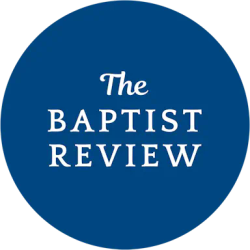“Inconceivable!” exclaims Vizzini, the egotistical mercenary, one time too many. Inigo Montoya, The Princess Bride’s loveably self-deprecating swordsman, replies with annoyed confusion: “You keep using that word. I do not think it means what you think it means.”
Southern Baptists today may or may not have a doctrine problem, but I more convincingly believe we have a vocabulary problem. For whatever reason, I find myself in conversations across the convention in which well-meaning, theologically conservative Baptists are discussing the same issues and using the same words but are not really communicating. Perhaps it’s a matter of talking past, talking over, or talking around one another. Or perhaps there is at least a general disparity of definition. As the saying goes, it’s like we’re using the same vocabulary but not the same dictionary.
Words Matter
Words have meaning, and shared meaning of words is essential to meaningful conversation. Perhaps, in some cases, we are busy straining out gnats while swallowing down camels, all the while not agreeing on how to recognize one from the other. I am not the lexical authority on the corpus of Southern Baptist terminology, and what follows is not an exhaustive list of words that need defining among us. But perhaps this will invite charitable conversation toward a shared language. And perhaps a shared language will one day lead to a more meaningful conversation.
Pastor
The elder(s)/bishop(s)/overseer(s) of a local church who exercise(s) spiritual authority and supervision over the entire body, both in its weekly gatherings and in the administration of its ongoing ministry and mission.
Some in our convention argue that any person on staff with the word “pastor” in his or her title is therefore holding the office of pastor, but others who allow sub-staff ministerial positions to utilize this title may or may not agree. Church staffs may have many positions and many titles, but those who hold the offices are distinguished by their official installment and biblical authority and supervision over the entire congregation. Scripture is clear that elders/bishops/overseers are to be biblically qualified males.
Membership
Those messengers of annual convenings elected and appointed by their cooperating Baptist churches, who are seated in the constitution of the annual meeting of the convention.
Churches are not members of the Southern Baptist Convention. The convention is a two-day convening of messengers from invested and involved churches, and those messengers are the membership of that year’s convention. There, between the gavels, the members of the convention make big decisions about the concurrent messenger body, the upcoming annual budget, the selection of committee and board positions, and the convention’s governing documents. When the closing gavel falls the convention no longer exists, other than in its ongoing work entrusted to committees and boards between annual meetings. Its “members” (messengers) are written into history. The churches continue to be involved and invested in their shared mission and, in time, elect and appoint messengers to the next year’s convention where a new body of messengers will become part of the membership of that subsequent convening.
Denomination
A subset of the whole; in evangelicalism, a division (denomination) of the larger evangelical tradition into subsets of Christian church groupings, usually distinguished by doctrine and practice.
It is trendy to say, “we are a convention, not a denomination,” but that may be less helpful than we think. Our original constitution claimed, and our current constitution still reiterates, that we are, in fact, a “denomination.” Some evangelical denominations, like Methodists and Presbyterians, are controlled by ecclesiastical hierarchies. Others, like independent Baptists, choose complete organizational and missiological disconnection. Southern Baptists are unique, however, holding to complete local church autonomy while organizing and operating through a voluntarily cooperative governance. We are a denomination of the larger evangelical tradition, but we are, by conviction, neither ecclesiastically hierarchical nor missiologically disconnected. To be a convention is not mutually exclusive from being a denomination. However, it is important to remember that the Southern Baptist Convention has always operated with a bottom-up governing structure (what many mean by “convention”) rather than a top-down governing structure (what many mean by “denomination”).
Confessional
To be in some way affected, guided, guarded, represented, and/or regulated by a confession of faith.
Some argue that the path forward for the Southern Baptist Convention is either confessional or denominational or conventional. But to be confessional is to simply give a place to the confession of faith. In many state conventions, for example, the confession (BFM, specifically) plays a formal guiding/guarding role in the work of convention employees, but it only has a narrowing role in the convention’s organizational mechanism (e.g. the confession may not regulate the seating of messengers but be restrictive in the appointment of a trustee or board member). A convention of autonomous churches can have a confessional methodology and/or a confessional missiology without necessarily having a strictly confessional “fellowship.” To say one model is confessional while others are not is to do an injustice to the meaning of the word and to confuse the conversation.
Autonomy
The authority and ability of a single Baptist church to govern itself, including the selection and ordination of ministers, the definition and articulation of its own beliefs and practices, the ownership and management of assets, and the authority to cooperate with other churches or organizations that it believes complement and/or advance its mission.
Local church autonomy and larger Southern Baptist organizational cooperation are not in opposition to one another. Each cooperating church retains complete freedom to adopt, affirm, or subscribe to any statement of faith it so chooses. Southern Baptists’ Baptist Faith and Message is a “consensus of faith and practice,” an identification and affirmation of “certain definite doctrines that Baptists believe, cherish, and with which they have been and are now closely identified,” as its 1963 and 2000 Preambles articulate. Messengers to the annual meeting of the national convention set the boundaries of cooperation, and churches can choose either to cooperate within those boundaries or to no longer cooperate. For this reason, a matter of great importance is to pay careful attention to the boundaries of cooperation written into governing documents, along with any potential changes to those boundaries from year to year. Regardless, whether the boundaries of cooperation remain the same or move through the years, local church autonomy is not disturbed.
Affiliate/Partner
In Southern Baptist cooperation, either a formal connection between the Convention and its legal entities, or a voluntary agreement between autonomous individuals or organizations toward their shared goals.
In the first sense, a formal, legally binding connection exists between the Southern Baptist Convention and its entities. In the second sense, no formal or legal implication is intended; rather, an affiliate is a partner in the same sense that the Philippians were partners with Paul in the gospel (Phil. 1:5). Some state conventions utilize the word “affiliation” or “affiliate” to indicate formal membership; others use the word to imply voluntary relationship in a shared mission. However, in the national convention’s constitution and bylaws, the only usage of the word “affiliated” are in reference to a church’s affiliation with its state convention (bylaw 15.A 15.H, 19(3)), to guide the Committee on Nominations and the Committee on Committees. Since the national convention has no authority over the governance of state conventions, and since “affiliated” means different things to different state conventions, the meaning of this word in the national body’s governing documents must refer to the second sense, assuming some relationship between the church and its corresponding state convention without defining that relationship either formally or informally.
Why Definitions Matter
As I tell my staff often, language creates culture. What we say, when we say it, and how we say it—these are actively forming something within us and between us. Southern Baptists, what kind of culture are we creating with the words we use? A culture of clarity or one of confusion? A culture of dialogue or one of rhetoric? A culture of substance or one of semantics? Perhaps there are some words we should strike from our shared lexicon altogether. Perhaps there are others we must learn to define more clearly if we are going to employ them more meaningfully. Otherwise, we might continue to say a lot of words without communicating much of anything.
Do you agree or disagree with any of these definitions or their corresponding commentary? Are there other shared words that you feel need clarification between us if we are to enjoy more meaningful conversation?


